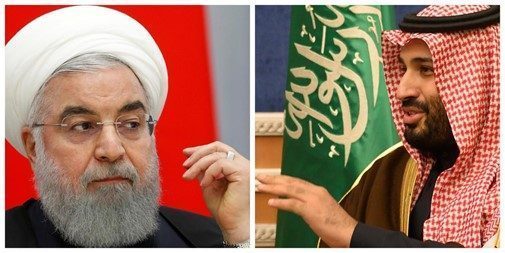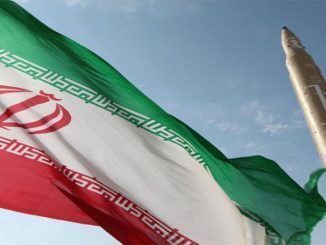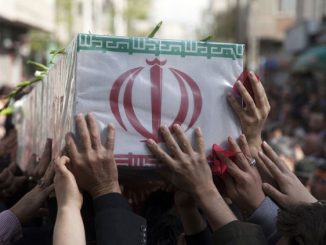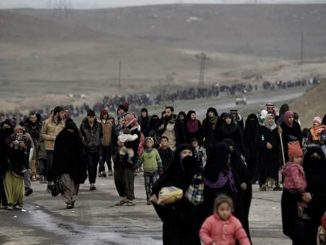
Iran has welcomed a “change of tone” from Saudi Arabia, as both countries seem to be open to taking steps to calm tensions and improve cooperation. After six years of asymmetric warfare, proxy battles, and mutual recriminations, Saudi Arabia this week offered dialogue with its bitter regional rival Iran.
In a statement yesterday by the Iranian Foreign Ministry’s spokesperson Saeed Khatibzadeh said that “by adopting constructive stances…the two countries…can enter a new chapter of interaction and cooperation to reach peace, stability and regional development, by overcoming differences.”
Tehran, he added, is “a pioneer on the path to regional cooperation and welcomes the change of tone from Saudi Arabia.” Khatibzadeh’s remarks come days after Saudi Crown Prince Mohammed Bin Salman called for “a good and special relationship” with Iran in a televised interview on Tuesday.
In a televised interview Tuesday, Saudi Crown Prince Mohammed bin Salman called for the two nations to overcome differences that have divided the region.
Bin Salman acknowledged that the kingdom still has problems with Iran’s “negative behavior”, but added: “We are working with our regional and global partners to find solutions to these problems, and we hope to overcome them for good relations that benefit everyone.”
The conciliatory tones come after it was reported earlier this month that officials from the two countries held secret talks in the Iraqi capital Baghdad. Hosted by Iraqi Prime Minister Mustafa Al-Kadhimi, the talks were confirmed by Iraqi officials and a Western diplomat was cited as saying that he had been “briefed in advance” regarding the efforts to “broker a better relationship and decrease tensions.”
Relations between Tehran and Riyadh have increasingly deteriorated over much of the past decade and ties were cut in 2016 after the kingdom executed the prominent Shia cleric Nimr Al-Nimr and dozens of others found guilty for leading mass protests in the country’s east.
The two countries have also been supporting opposing sides in a number of conflicts in the region, including Yemen, Syria and Iraq.
MBS seeks good relations with Iran
Saudi Crown Prince Mohammed Bin Salman told Al Arabiya TV last Tuesday that his country wanted Iran to help push the Middle East towards prosperity.
But he noted that it had an issue with “Iran’s negative behavior”, citing its nuclear program, missile launches and support for “outlaw militias”.
He added that Saudi Arabia was working with its regional and global partners “to find solutions to these problems”.
The prince’s comments come days after reports emerged that top Saudi and Iranian officials had held secret talks in Iraq in a bid to repair relations.
Saudi sources denied the reports. But Iran’s foreign ministry neither confirmed nor denied them, saying instead that it “always welcomed dialogue”.
Saudi Arabia, which sees itself as the leading Sunni Muslim power, and Iran, the largest Shia Muslim country, have been locked in a struggle for regional dominance for decades.
But in recent years, their rivalry has been exacerbated by proxy wars across the Middle East.
In Yemen, a Saudi-led coalition of mostly Sunni Arab states has been supporting pro-government forces in their war against the Iran-aligned rebel Houthi movement since 2015. Iran has denied that it is smuggling weapons to the Houthis, who have stepped up their missile and drone attacks on Saudi cities and oil infrastructure.
Saudi Arabia has also accused Iran of interfering in Lebanon and Iraq, where Iranian-backed Shia militias have amassed vast military and political influence; of attacking cargo and oil tankers in the Gulf; and of being behind a missile and drone strike in 2019 on Saudi oil installations.
In addition, the kingdom opposed the 2015 agreement that limited Iran’s nuclear program, and supported then US President Donald Trump’s decision to abandon it and reinstate economic sanctions three years ago.
Iran, which retaliated by breaching key nuclear restrictions, is currently negotiating indirectly with President Joe Biden’s administration on how to revive the deal.
In the TV interview broadcast on Tuesday night, Prince Mohammed said Saudi Arabia did not want “the situation with Iran to be difficult”.
“At the end of the day, Iran is a neighboring country and all that we hope for is to have good relations.
“Our problem is with Iran’s negative behavior, from its nuclear program, to its support for outlaw militias in the region, or its firing of ballistic missiles,” he added.
“We are working with our regional and global partners to find solutions to these problems, and we hope to overcome them for good relations that benefit everyone.”
The comments by Prince Mohammed, who is Saudi Arabia’s de facto ruler, are more measured than in previous years. In 2018, he compared Iran’s Supreme Leader, Ayatollah Ali Khamenei, to Adolf Hitler.
Asked about the war in Yemen, which has caused what the UN says is the world’s worst humanitarian crisis, the crown prince said that no country wanted an armed militia along its borders.
He urged the Houthis, who rejected a Saudi ceasefire proposal last month, to “sit at the negotiating table” to find solutions that could “assure the rights of the people of Yemen and also the interests of the region”.
Prince Mohammed also downplayed any differences with the new US president in the interview.
As well as seeking to rejoin the Iran nuclear deal, Mr Biden has withdrawn US support for Saudi offensive operations in Yemen, been critical of Saudi Arabia’s human rights record, and released a US intelligence report that concluded the crown prince had approved the 2018 murder of the journalist Jamal Khashoggi. The prince denies any involvement.
“We are more than 90% in agreement with the Biden administration when it comes to Saudi and US interests, and we are working to strengthen these interests,” Prince Mohammed said. “There is no doubt that the United States is a strategic partner.”
Saudi offers Houthis economic support
Saudi Crown Prince Mohammed Bin Salman said on Tuesday that Riyadh is ready to support the Houthis in Yemen if the movement expresses readiness to stop attacking the kingdom.
“The Kingdom of Saudi Arabia proposes an offer, including economic support and whatever they need in exchange for ceasing fire and sitting at the negotiating table,” Bin Salman said in an interview.
Speaking of Houthi leader Abdel-Malek Al-Houthi’s ties to Iran, Bin Salman said: “There is no doubt that he has strong ties with the Iranian regime, but Al-Houthi is Yemeni, and we hope that he will eventually take the side of his homeland and Arabism, and his country’s interest before anything else.”
The crown prince however retracted his previous statements in which he threatened to eliminate the Houthis in a short space of time.
International calls have been intensifying recently to end the Yemen war that Saudi Arabia waged seven years ago to reverse Houthi gains after the group took control of the Yemeni capital Sanaa and other urban areas in the north.
In the same interview, the crown prince said that Saudi Arabia aspires to establish good relations with Iran, and expressed his country’s willingness to take a step forward in this direction if Tehran agrees to let go of some of its ambitions in the region.



